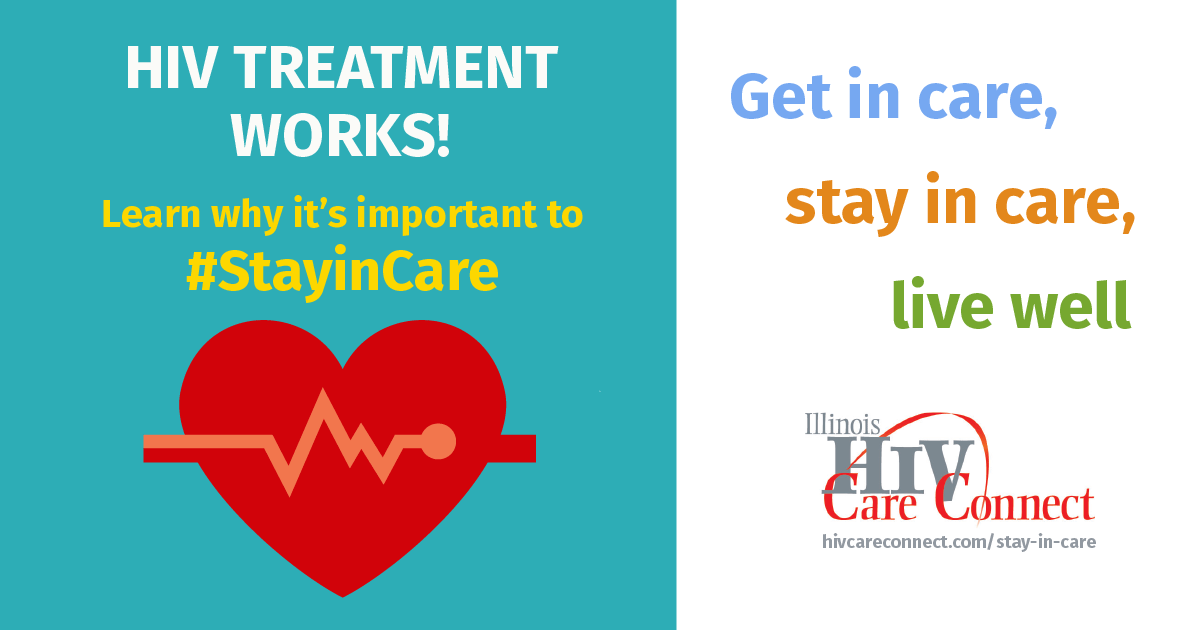You and your doctor will need to form a strong partnership to manage your health and HIV care. During your medical appointment, your doctor will ask questions about your health history, examine you to see how HIV is affecting your body, take blood samples to check the amount of HIV in your blood, prescribe any needed immunizations or medications, and more.
Be sure to take advantage of these opportunities to talk with your health care provider about how you are feeling, including about whether or not you feel depressed or anxious. Being honest about any physical or mental health concerns you may have is very important. Illinois HIV Care Connect has published helpful content about HIV and Mental Health.
Studies show that a fear of HIV stigma or medication side effects may contribute to keeping persons living with HIV from regularly accessing treatment or care. It’s important to seek the support and information you need to overcome these fears. An Illinois HIV Care Connect case manager or peer advocate can assist. In addition, to make time to see the doctor, you may need to arrange for transportation or assistance with work or child care responsibilities in advance.



